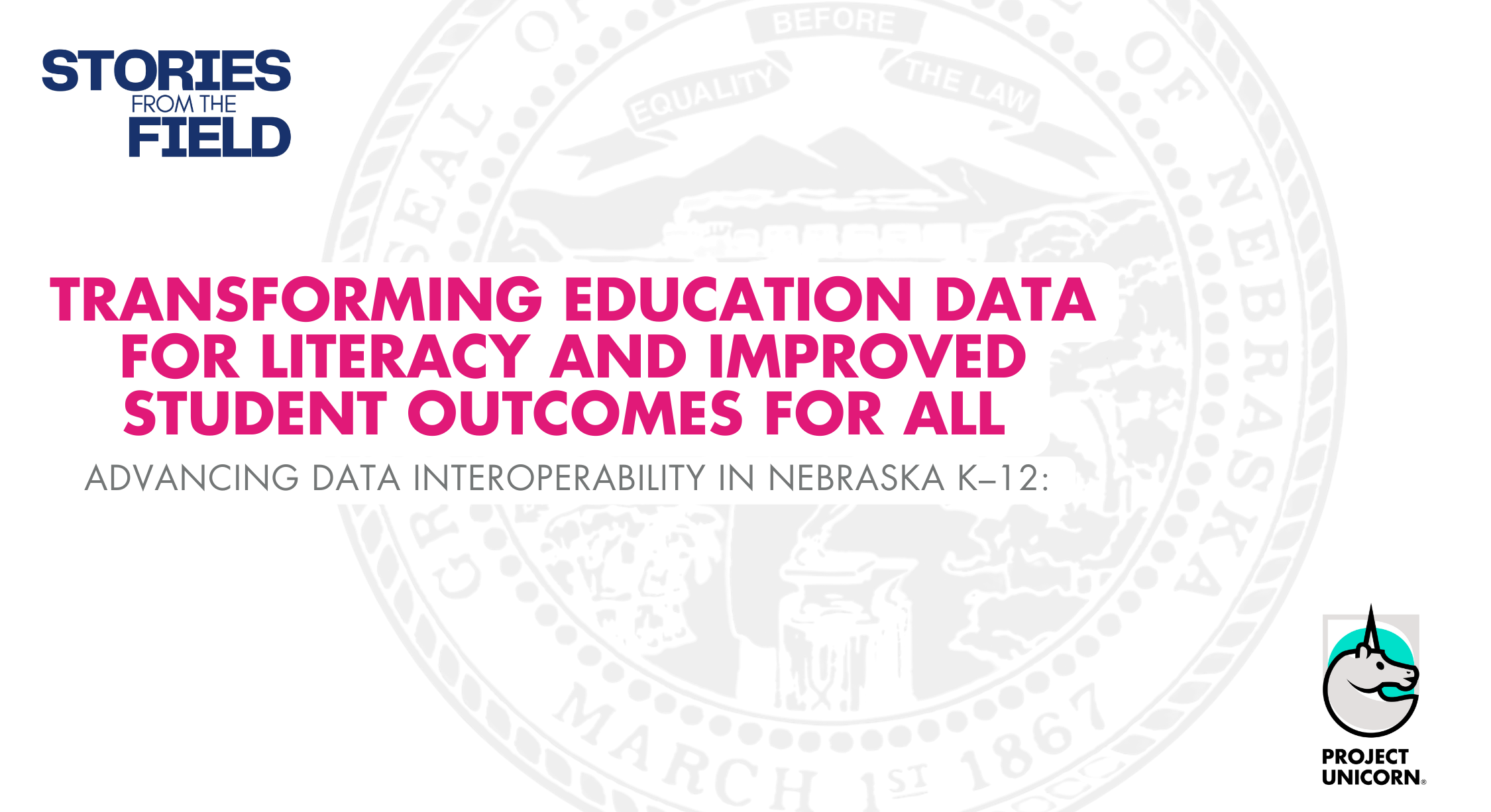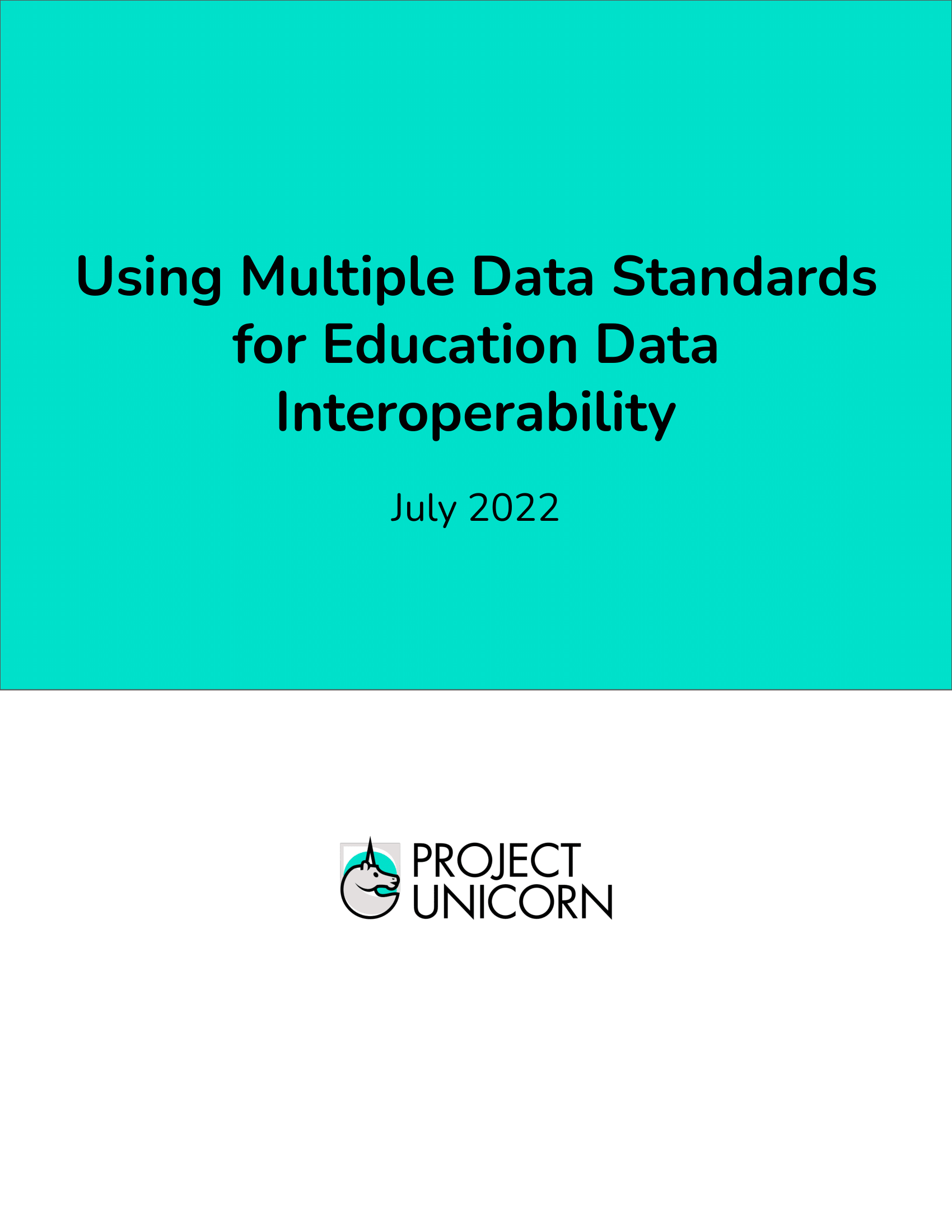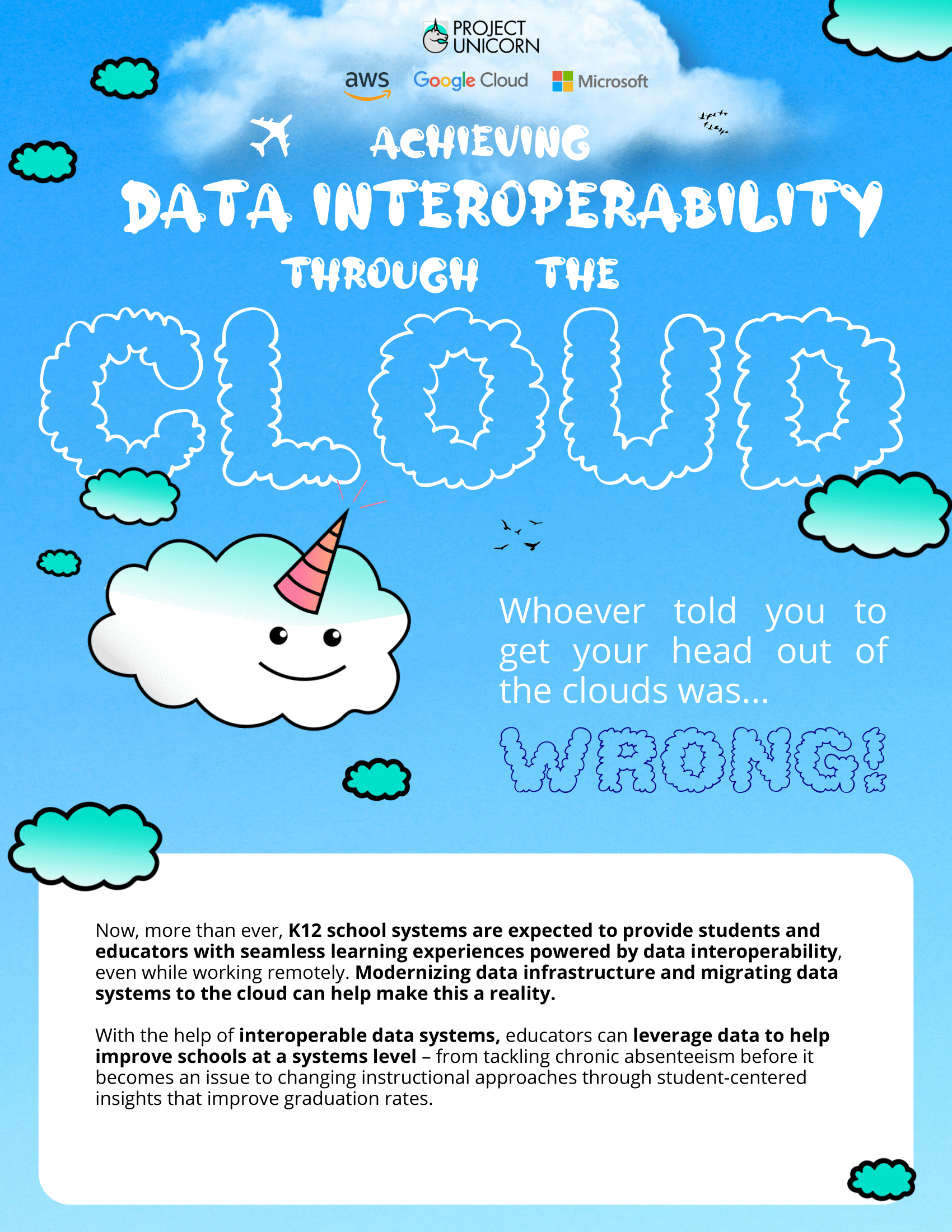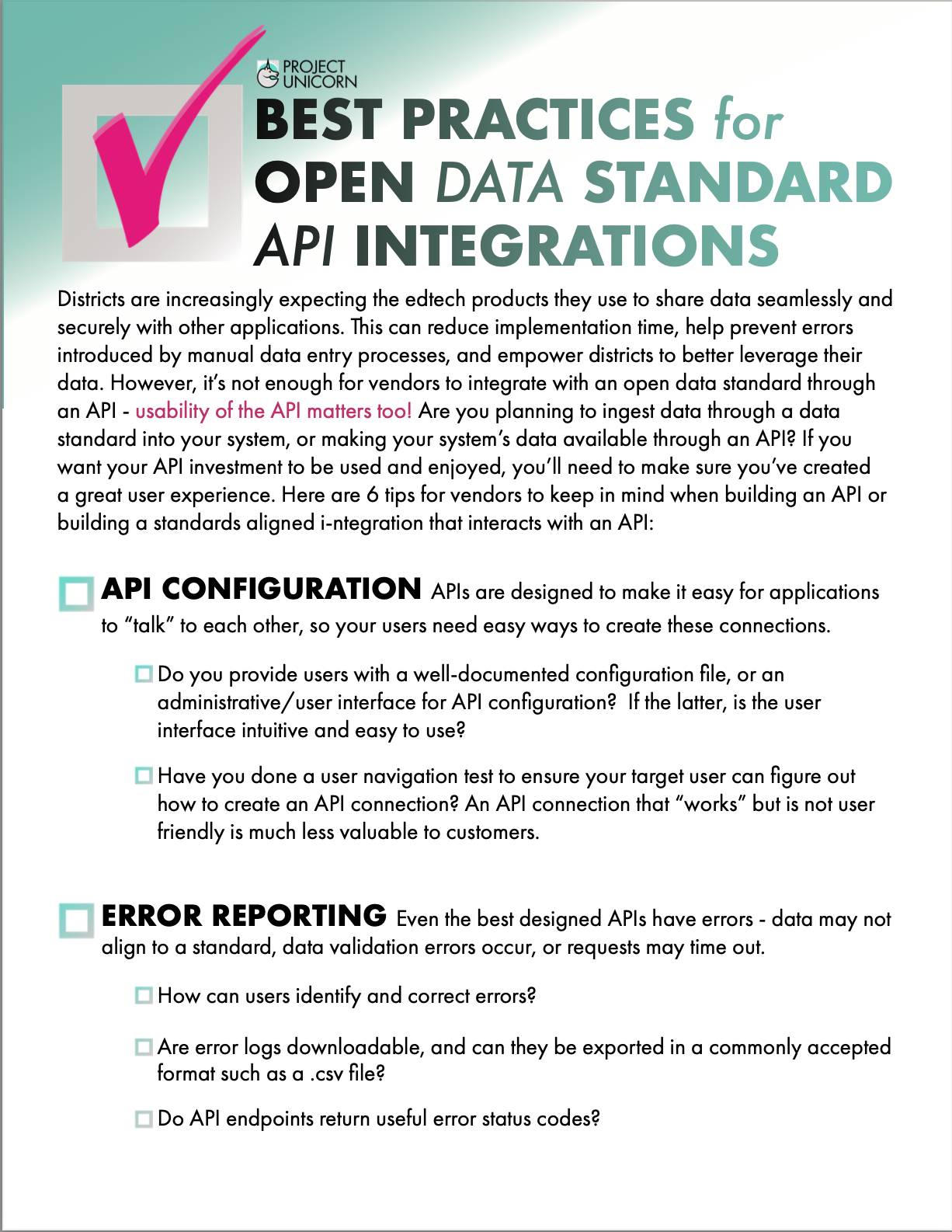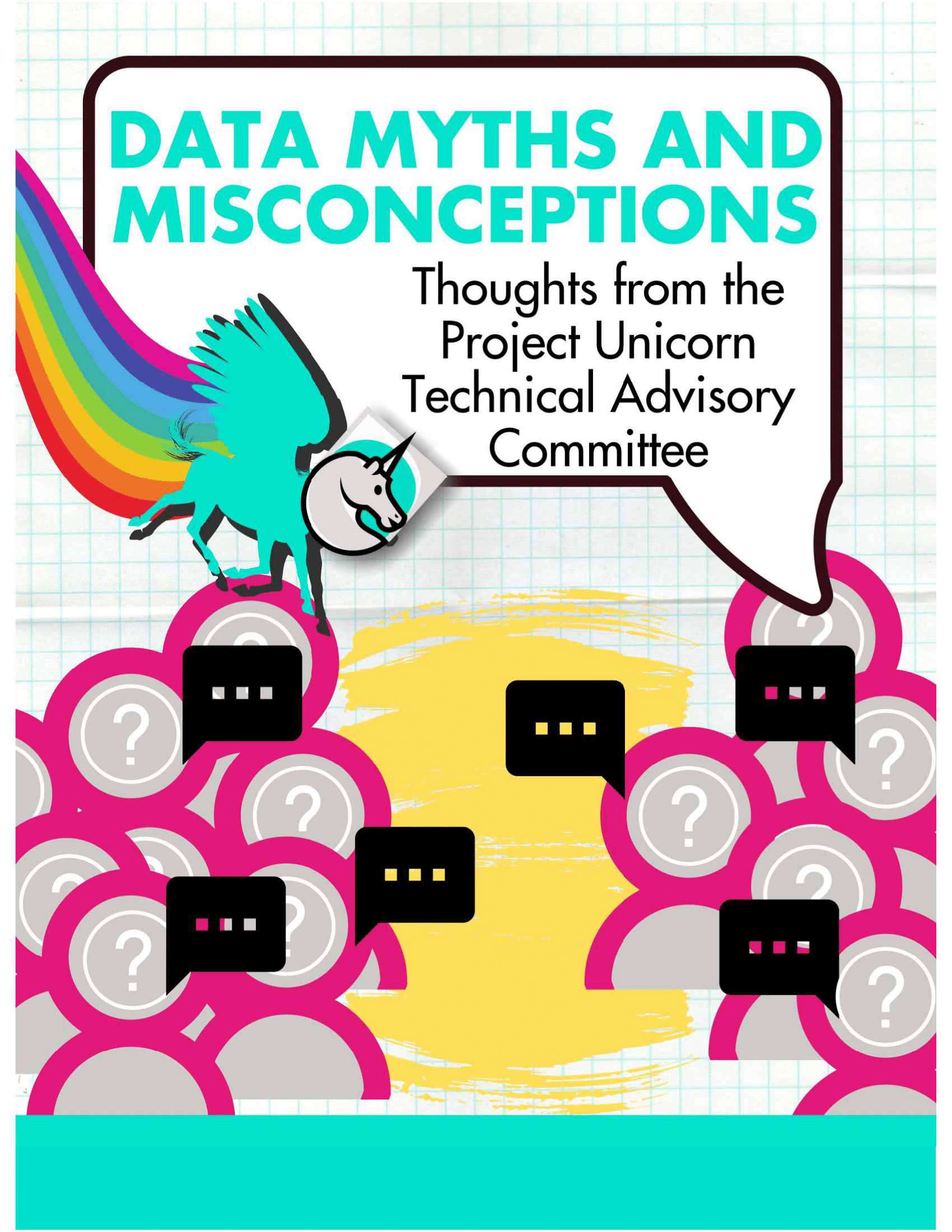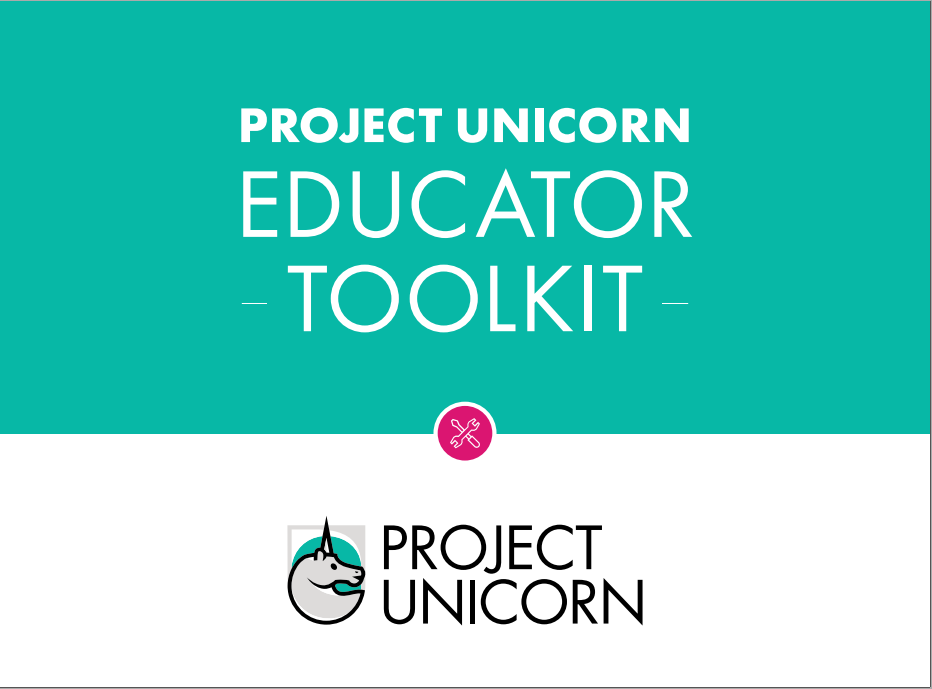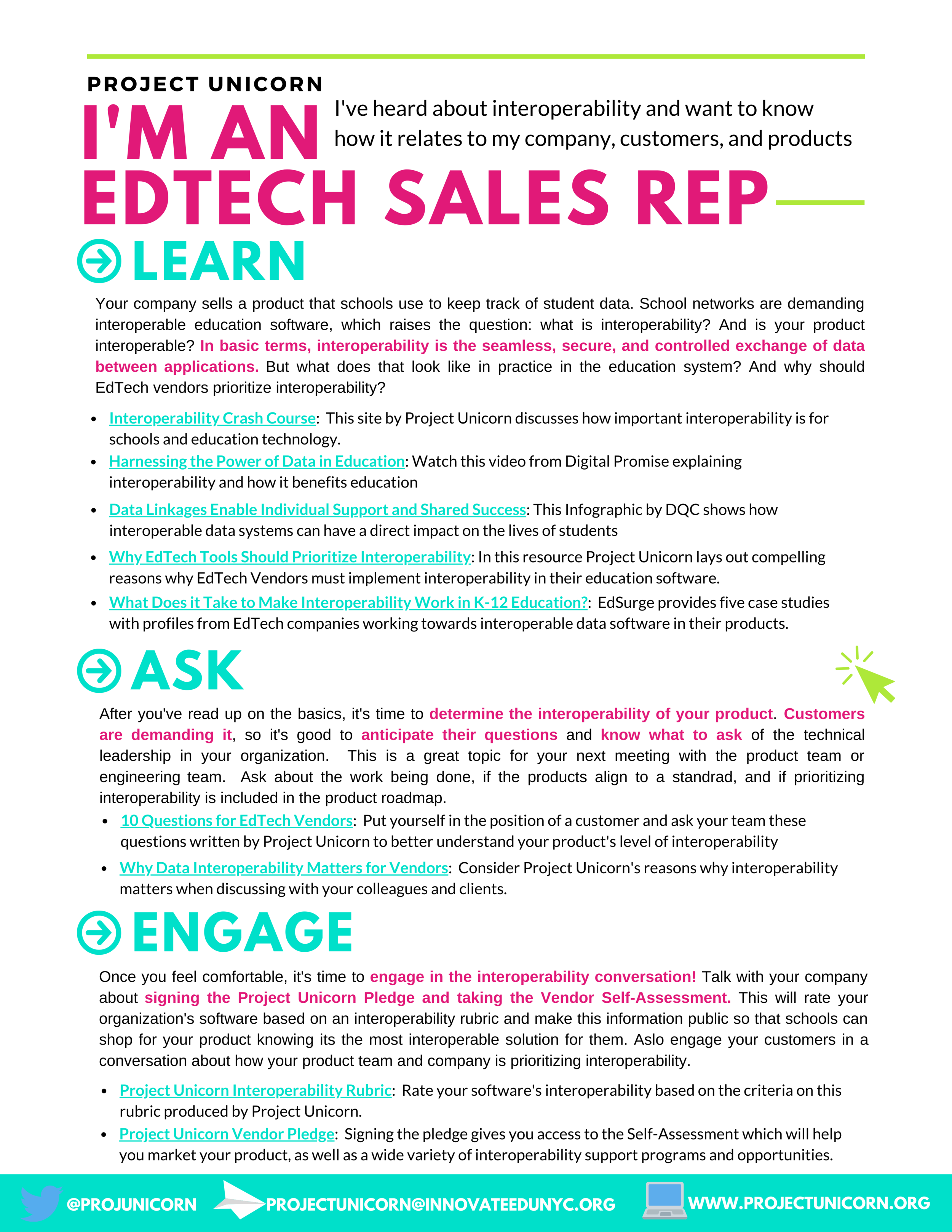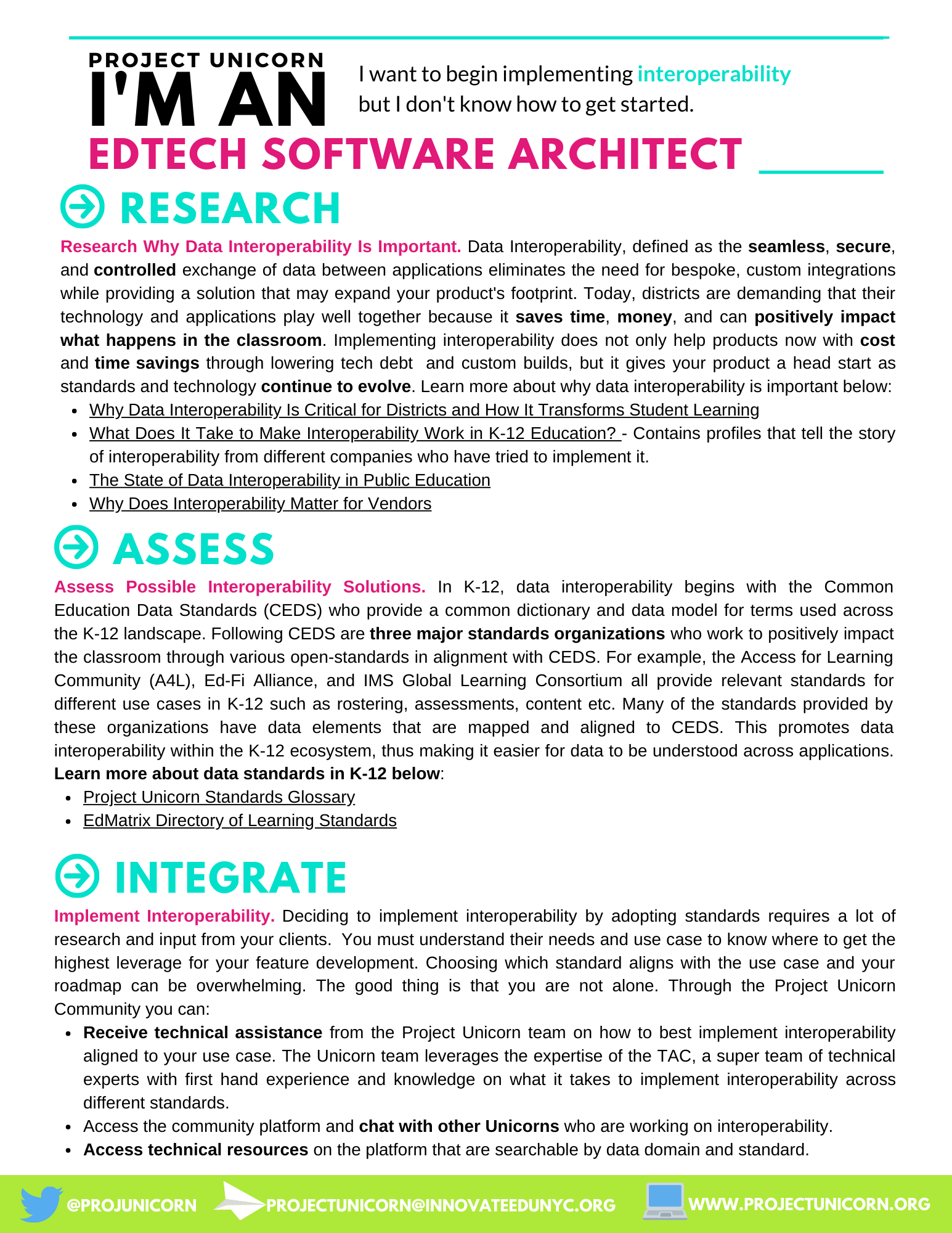Protecting student data privacy is critical to implementing interoperable technology systems. Read this jump-start guide to learn about key education data privacy organizations and resources that support best practices in student data privacy during your interoperability journey.
Read MoreData integration platforms, products and services can help school systems seamlessly and securely bring together previously siloed education data, supporting advanced data analytics and reporting. This can help educators make better decisions to support students and save school systems time and money. Peruse our list of integration specialists to find the right provider and solutions for you!
Read MoreDigital equity is achieved when all individuals and communities have the information technology capacity that is needed for full participation in the society and economy of the United States (U.S.). Reaching this goal for all learners is a challenge that has been highlighted and exacerbated by the digital opportunity and equity gaps exposed due to the COVID-19 pandemic…”
Read MoreData interoperability standards make possible the seamless, secure, and controlled exchange of data between applications. If you’re wondering “What’s the best data standard?” you may be asking the wrong question. Instead of thinking “what standards team should I pick” you should be thinking “what standards should I have on my team?” The answer will depend on the game that you’re trying to win. Read more below!
Read MoreWhoever told you to get your head out of the clouds was wrong! Now, more than ever, K12 school systems are expected to provide students and educators with seamless learning experiences powered by data interoperability, even while working remotely. Modernizing data infrastructure and migrating data systems to the cloud can help make this a reality.
Read MoreDistricts are increasingly expecting the edtech products they use to share data seamlessly and securely with other applications. This can reduce implementation time, help prevent errors introduced by manual data entry processes, and empower districts to better leverage their data. However, it’s not enough for vendors to integrate with an open data standard through an API - usability of the API matters too! Read more about best practices for open data standard API integrations.
Read MoreThe Project Unicorn Interoperability Certification signals to school systems and districts that an edtech product prioritizes data interoperability. There are four tiered badges available representing levels of interoperability, with tier 4 equaling the highest standard.
Read MoreInteroperability can be your market advantage! Data interoperability is the seamless, secure, and controlled exchange of data between applications through the use of data standards. This allows for the exchange of information in real or near-real-time, allowing school districts to bring together siloed data elements and leverage them in new ways. Aligning to data standards demonstrates visionary leadership, signaling your commitment to helping educators and administrators make the most of their data and positioning your company as a market leader.
Read MoreSigning the Project Unicorn pledge is just the start for EdTech Vendors! Rate the interoperability in your edtech data tool by following the steps below!
Read MoreData interoperability is the seamless, secure, and controlled exchange of data between applications. Interoperability allows schools to bring together siloed data and leverage it in new ways to improve teaching and learning. Implementing interoperable standards allows edtech vendors to link their products to a broader ecosystem and increase product value. Learn more about interoperability and Project Unicorn with this resource!
Read MoreWhen it comes to data interoperability, sometimes it's hard to know what is fact and what is fiction. This resource tackles some of the most common myths and misconceptions about interoperability. Discover the truth with this resource from the Project Unicorn Technical Advisory Committee!
Read MoreNow more than ever, educators are facing both known and unknown challenges to ensure that learning keeps going - no matter what. This toolkit from Project Unicorn provides support for Educators looking for better ways to leverage interoperable technology to support student learning.
Technology is helping schools use student data to unlock insights into a student's learning to boost academic growth and understanding. But when our technology doesn't work well, it can hinder our ability to assess and meet the needs of our students. One way to fix this is by making education technology interoperable. Click here to learn more about how data interoperability advances student success and gives you back your Sundays.
Read MoreFrom improved instruction to data quality and efficiency, interoperability can help schools, states, students, teachers, districts, and families in ways you may not even realize. Read this resource to understand what interoperability is and what it means for groups across the education spectrum, from students to edtech vendors to state teams. See how real classrooms and school teams across the country have used interoperability to help their schools be better.
Read MoreLet’s be honest, interoperability doesn’t sound like a fun word and doesn’t do enough to talk about the magic that it gives us. Give this resource to the biggest skeptic of investing in interoperability to understand how interoperability is part of our everyday lives by going on a theoretical trip to Colorado.
Read MoreClassrooms across the country went dark in a matter of days when COVID-19 spread. For many schools, this meant that learning stopped as educators struggled to get their students' curriculum, learning materials, devices, and more without a digital ecosystem in place that allowed for quick solutions and online learning. In these stories from districts across the country who dealt with the 48-hour transition, learn what struggles and challenges they faced and how having a connected digital ecosystem supported all aspects of that transition, from logins and assessments to equity and inclusion. Read about how they tackled interoperability challenges and worked towards their edtech connectivity goals to create a digital atmosphere to ensure that learning kept going for students.
Read MoreSchools are demanding interoperable technology. If you’re on the non-technical side of things at your company, check out this resource to learn more about what interoperability means, how your company can implement it, and how you can better discuss it with your customers.
Read MoreAre you a software architect or developer looking to learn more about how to implement data interoperability within your tool? Read this resource for the first three steps to help you get started with the tools that can help you along the way.
Read MoreSchools across the country had the herculean task of transitioning to fully digital classrooms, effectively overnight. From the Project Unicorn Technical Advisory Committee, read this resource to see how interoperability standards can support a fully remote classroom through different use-cases. A must-read for tech directors and data teams.
Read MoreWe are excited to announce that the Project Unicorn Community Platform is now open! The Community Platform is a place for Project Unicorn Signatories to access new resources, start a community chat, apply for scholarships, and more.
Read More
